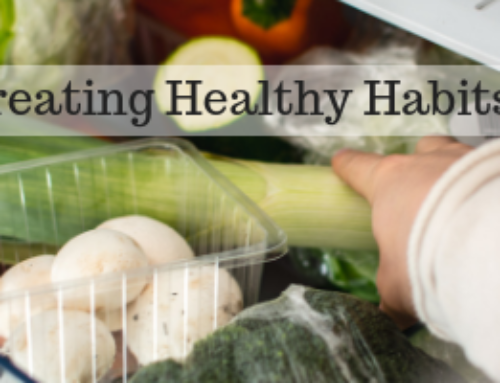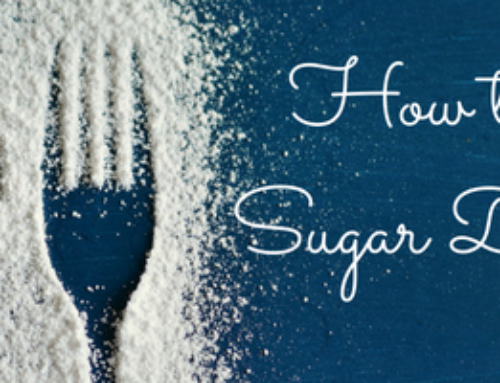Over the past few years, growing research has shown that inflammation plays a significant role in many disease processes, from heart disease to Alzheimer’s. In general, our body uses inflammation to fight off infections and repair tissue. It’s a necessary process that allows for a well-tuned immune system, allowing the body to heal after injury. However, this inflammatory response is working overtime in a lot of people, producing too much inflammation. One theory is that during human history, we naturally selected for a good inflammatory response. After all, survival to humans during the hunter-gatherer era meant fighting off infections, and healing from injuries. However, in our modern era, this extra inflammation may be too much of a good thing. As well, many of the foods in our modern diet exacerbate inflammation. Thus, controlling inflammation through diet is a fundamental need to reduce aging and disease.
First, it is imperative to take out foods that promote inflammation. Vegetable oils high in omega-6 fats are very pro-inflammatory. These oils build up in the cells of the body, and convert into inflammatory chemicals. Oils high in omega-6 fats include: corn, safflower, sunflower, grape seed, and soybean oil. These oils are relatively new in the human diet; they were not consumed as oils until very recently. Corn and soybean oil are some of the cheapest oils on the market, not to mention often GMO, therefore food manufacturers will choose these oils to keep costs down. Eating the “whole” soybean, sunflower seed, or corn is okay in moderation, but it is best to eliminate consuming these pure oils.
Hydrogenated, and partially hydrogenated oils, better known as trans fats, are highly pro-inflammatory. The food manufacturer has chemically changed these oils. You will not find these fats in natural foods. Read the ingredient labels of all packaged foods to make sure these oils are absent – if you see the word “hydrogenated”, don’t buy it. Avoiding fried foods is imperative, the fats in fried foods are damaged, and will wreak havoc on your body.
Reducing blood sugar is also imperative in controlling inflammation. Research from Harvard showed women who ate a high glycemic load diet had nearly twice as much inflammation as those who at a low glycemic load diet. High glycemic load foods are carbohydrates that are quickly digested and cause a rapid rise in blood sugar. Such foods include white potatoes, white rice, white bread, and sugar.
Next, you must add anti-inflammatory foods to your diet. Foods high in omega-3 fats are great for this, since they create chemicals in your body that dampen inflammation. Fatty fish, like salmon, herring, sardines, and mackerel are very high in omega-3 fats. Try to consume these fish three times per week, or take a high quality fish oil supplement daily that provides at least 1000mg of EPA and DHA combined. OmegAvail Ultra with Vitamin D + K is one of my favorite fish oil supplements to recommend as it provides the 1000mg of essential fats along with a dose of fat soluble vitamins D and K.
Herbs and spices carry an abundance of natural chemicals that reduce inflammation. Turmeric is a super star in this regard; the phytochemical curcumin in turmeric has demonstrated in several studies to suppress inflammation, being comparable to potent drugs like hydrocortisone, however without the toxic side effects. Curcumin is such a potent anti-inflammatory phytochemical that I often suggest taking it as a supplement for issues where inflammation is out of control. Designs for Health has a highly bioavailable curcuminoid formulation called Curcum-Evail. You can learn more about it here, or drop me a line to ask more specific questions.
Other beneficial herbs include ginger and rosemary; use them frequently in your cooking. Remember, that it is best to make sure that your spices are “fresh”, both for nutritional value and taste. The volatile oils found in pre-ground spices break down within a 4 – 6-month period after purchase. Grinding your own spices in a coffee grinder is one way to keep them longer in your cabinet and retain their known qualities.
Squelching inflammation is yet another reason to eat your fruits and vegetables. Produce high in the phytochemical quercetin is very beneficial. These include red apples, red onions, and grapes. Pineapple contains a powerful enzyme known as bromelain. It has been known for some time that this enzyme helps to reduce the pain and swelling that can accompany inflammation. Bromelain may be destroyed in the canning process, so it is best to eat fresh pineapple. And, the one you have been waiting to hear – the phytochemical resveratrol found in red wine and red grapes, possesses anti-inflammatory properties. It may be the resveratrol in red wine that provides its cardio-protective benefits. Don’t forget, moderation is essential.
As always, if you found this blog post helpful, please share with family or friends.






